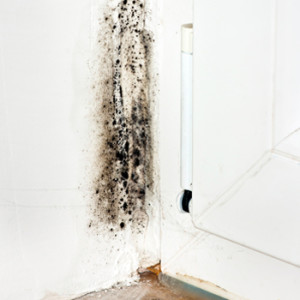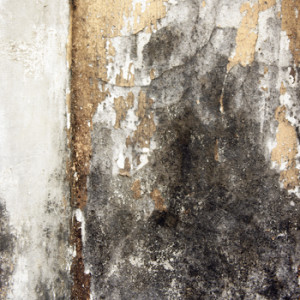Is Mold Really a Problem?

Many people think mold damage is only a problem in warmer climates typical to southern states. While warm temperatures are conducive to growth, a lot of people don’t realize that the primary ingredient is water, which is in abundance in coastal cities. Mildew needs very few things to survive; a food source such as wood, fabric or drywall, darkness, oxygen, moisture and warmth. While the climate in northern states like Pennsylvania and New Jersey is often colder, modern HVAC systems keep the temperature inside nice and cozy warm, which are prime conditions for mold to thrive.
What Causes Mildew Growth?
As mentioned before, the key ingredient is moisture. Unseen leaking plumbing pipes and roof leaks are common causes of moisture problems which lead to mildew. Condensation on cold metal pipes, HVAC ductwork and concrete subflooring can also be an issue. Poor ventilation can also leave humid air trapped inside your home. Flooding is also a common cause as the rainy seasons can tend to be overwhelming for many basements. Even water around your home’s foundation from not being properly routed away by a rain gutter can lead to mold problems.
Essentially, mold spores, found in abundance outdoors, are carried inside by foot traffic from people and pets or through your ventilation. Those spores then find their way to moist areas in your home and slowly begin to grow and spread.
What Kind of Damage Can Mold Cause?
 Mold spores are very small and cannot be seen by the naked eye. For this reason they are inhaled into our lungs and generally act as an irritant. Many people may experience coughing, sneezing, itchy skin, dry eyes, trouble sleeping and other fever-like symptoms. Some people are allergic to mold and may have more serious reactions such as bloody noses, difficulty breathing or full on asthma attacks. Mycotoxins produced by toxigenic mold can also cause diseases in sufficient quantities. Overall, mold infestation is extremely unpleasant and inconvenient and can pose as a real threat to health to people with respiratory problems or infants and the elderly.
Mold spores are very small and cannot be seen by the naked eye. For this reason they are inhaled into our lungs and generally act as an irritant. Many people may experience coughing, sneezing, itchy skin, dry eyes, trouble sleeping and other fever-like symptoms. Some people are allergic to mold and may have more serious reactions such as bloody noses, difficulty breathing or full on asthma attacks. Mycotoxins produced by toxigenic mold can also cause diseases in sufficient quantities. Overall, mold infestation is extremely unpleasant and inconvenient and can pose as a real threat to health to people with respiratory problems or infants and the elderly.
What is Mold Remediation?
Mold remediation is the process that a professional mold removal team takes to remove mold and prevent its return. Basically it is a complete mold treatment that returns a home’s atmosphere to health and comfort. There are a number of steps involved that should be completed by trained individuals who possess the knowledge and equipment to safely deal with mold. The first step is typically inspection. This is where a mold specialist can find all of the areas of your home where mold may be hiding; under your carpet, within your walls or even inside your ductwork. Once the mold source has been identified, remediation can begin. Hard surfaces are thoroughly cleaned with mold killing chemicals that are safe for your home and its inhabitants. These areas are sanitized completely to ensure no mold spores are present and mold cannot return. Porous material that may have absorbed the mold is then removed. Things like carpeting, drywall, ceiling tiles and other materials that cannot be properly or completely cleaned will have to be safely disposed of and replaced. Quality mold removal specialists will also check all of your HVAC components to make sure things like condenser coils, humidifiers and other aspects that are subject to moisture are not malfunctioning. Detailed cleaning of your ductwork may also be required to get any mold that might be growing within your forced air unit.
Once mold remediation has been completed, mold is eliminated from the home and traces that could lead to its return are destroyed. This starts the process of returning the home’s air quality to normal, healthy conditions. However, prevention is the next important step. The source of any moisture accumulation problems must be addressed. With a consistently dry indoor climate and normal humidity levels, your home should stay healthy and mold free.
What Impact Will Mold Remediation Have On My Home?
 With mold and mildew gone, everything from mild irritations such as coughing and sneezing to more serious ailments like chronic asthma attacks and respiratory issues will cease. You will also sleep better, which is key, especially for homes with infants. Overall well being will improve which can impact several other areas of your life. Another important benefit is your property value will return to normal. Mold problems can significantly reduce your home’s value and if mold is discovered in a pre-sale inspection, you could easily lose that sale. Ensuring your home is mold free keeps its value intact as it won’t pose as a health hazard and inevitable expense for a future owner.
With mold and mildew gone, everything from mild irritations such as coughing and sneezing to more serious ailments like chronic asthma attacks and respiratory issues will cease. You will also sleep better, which is key, especially for homes with infants. Overall well being will improve which can impact several other areas of your life. Another important benefit is your property value will return to normal. Mold problems can significantly reduce your home’s value and if mold is discovered in a pre-sale inspection, you could easily lose that sale. Ensuring your home is mold free keeps its value intact as it won’t pose as a health hazard and inevitable expense for a future owner.
If you begin to suddenly have health problems and suspect you may have mold, be sure to get a mold inspection immediately. Before the purchase or sale of a house, an inspection is also advised. The most effective way to completely eliminate it is by hiring a mold remediation specialist. Mold is a danger to health and can be an expensive problem, but treating it as early as possible is your only recourse. If left unchecked, mold only grows and spreads, making the issue much more serious.
Check Out Our Recent Articles About Mold Remediation
- How to prevent Mold
Is Mold Really a Problem? Many people think mold damage is only a problem in warmer climates typical to southern states. While warm temperatures are conducive to growth, a lot of people don’t realize that the primary ingredient is water, which is in abundance in coastal cities. Mildew needs very few things to survive; a food...
Read More





